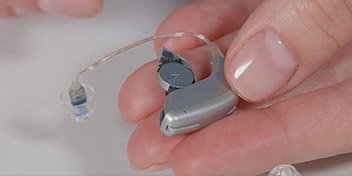Your inner ear system contains 2 different structures, one related to your hearing (the cochlea) and one related to your balance. They are linked via a series of connected fluid filled chambers, so a problem in one can sometimes affect the other. Balance is an important function of human life as it helps us to stay upright as well as aiding us to run, walk and move without falling over.
So, you may wonder just what role your ears play in this process?
Your balance system, also known as your vestibular system, is controlled through signals that help your eyes, sensory systems, body and ears to work together to prevent you from toppling over.
What role does your inner ear play in balance?
The balance mechanism in your inner ear contains three canals with fluid and sensors inside. These detect the rotational movement of your head, whether that be up-and-down, side-to-side or tilting of your head. Each canal is located at a different angle so your brain can better judge where your head is moving.
These trigger sensory nerves to tell your brain whether you are moving or if you are standing still.
Further to this, the ear also contains the utricle and saccule which provide information about your whole body movement when your head is not independently moving. The utricle judges horizontal movement and the saccule is sensitive to vertical changes. This means it may be affected when you go up and down an elevator.
How is balance linked to hearing?
Sometimes balance problems and hearing loss can be linked.
For instance, vertigo is often associated with Meniere’s, an inner ear fluid balance disorder that can result in hearing loss, tinnitus and make you feel your ears are full.
If you experience hearing loss in conjunction with vertigo, or dizziness, it is essential to visit your local clinician to decipher if the problems are related and help you develop a treatment plan. Audika offers a FREE hearing check for people aged 26 years and over. Book an appointment by clicking here or call us on 1800 340 631.
However, if you have sudden and disabling balance problems, seek medical help as soon as possible.





